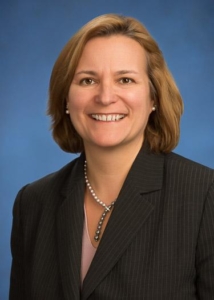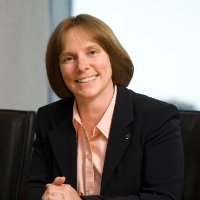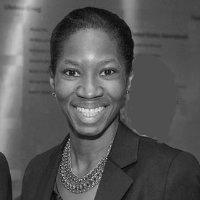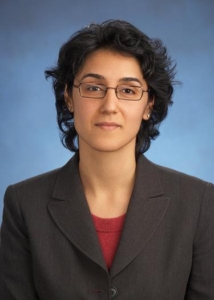 Welcome to Pride Week on The Glass Hammer — we’ll be profiling successful LGBT business women all week long!
Welcome to Pride Week on The Glass Hammer — we’ll be profiling successful LGBT business women all week long!
By Michelle Clark (Keene, NH)
When you ask Kathy Levinson, Managing Director at Golden Seeds, what her greatest professional accomplishment is, she will modestly talk about the details of her fourteen year career at investment firm Charles Schwab, or briefly mention what it was like to be the President of E*TRADE. But, it is when she speaks about the positive difference she has made in the lives of people who face professional challenges simply because they are different, that you really hear the pride shine through in Kathy Levinson’s voice.
Levinson did not always plan to be such an influential leader in the financial services industry. “My original plan when I was younger,” she says, “was to be a professional tennis player or a professional violin player, so I really I had no idea or intention that I would be an influential business leader, much less at the time, an out lesbian or a woman leading a company.”
In 1979, Levinson answered an ad in the newspaper for a broker’s assistant job at financial services firm, Bache, Halsey & Stuart, after letting go of her dream to achieve athletic or musical stardom. This, she says, “Was my unintentional and serendipitous start in the financial services industry.”
At Bache, Levinson experienced a lot of gender-based discrimination and verbal abuse and even some physical harassment, which was pretty common for women entering the male-dominated financial services industry at that time. Levinson sums up the general workplace culture by saying, “The words to describe women came in four letter words, maybe five letter words, and none of them were pleasant.” However, despite facing such an oppressive environment, as Levinson described it, she made the most of her time at Bache. During her year as a broker’s assistant, Levinson obtained her stock brokerage license.
After leaving Bache, Levinson had a short stint at a money management firm, but continued to struggle with finding her place in such a hostile environment. She eventually found her niche at a little known company at the time called Charles Schwab. Levinson recalls how she felt, “Charles Schwab seemed to fit me from both a philosophical and a values perspective.” She continues, “It was a renegade firm, the first financial services firm to be based on the West coast.”
Charles Schwab was a game changer in the financial industry because it was one of the first financial services firms established after new laws were introduced in the mid 1970s deregulating commissions on the buying and selling of stock. Unlike all other brokerage companies, Schwab’s brokers were salaried – they did not get paid commissions. In many ways, there are important parallels between Levinson and Charles Schwab. That is Wall Street wanted them both to fail – Levinson for not fitting the profile of a typical financial services professional and Schwab for creating an entirely new way for consumers to invest which benefited the investors instead of the brokers.
“When I went into the headquarters office at Charles Schwab for my interview, I saw women and young people, and that environment felt more appropriate for me.” Apparently, Levinson’s feeling was spot on as she spent fourteen years at Charles Schwab, holding a number of different positions. Aside from gaining valuable experience at Schwab, Levinson also felt like she was finally working in an environment where the company’s leaders were receptive to change, especially when it came to welcoming women into the world of investing. “I saw my higher level purpose as helping women become more financially secure and manage their money. Schwab was making investing easier for women, since women were so unwelcome at traditional brokerage firms, not only as employees but as customers.”
Yet, Levinson still recalls moments at Schwab where she felt like an outsider. Naturally, when Levinson arrived at Schwab, one of the first steps she took was to scan the company’s organization chart for a woman’s name. She found one woman in senior management, which certainly wasn’t uncommon at the time. Levinson recalls, “I got up my nerve to walk up to the executive floor and into her office. I told her how impressed I was by how far she had gotten in her career, and how I wanted to learn from her.” The response Levinson got wasn’t quite what she expected. “I was treated so harshly,” says Levinson. “She said to me that you just need to work hard and being a woman doesn’t matter at all because we’re no different.”
Levinson was taken aback by this misguided advice, but like she so often does when faced with adversity, she used this event to fuel her greater mission of promoting diversity in the workplace by promising herself that when she got to a senior level position, she would always make herself available as a mentor to women, lesbians, or anyone else who felt like they were struggling in their career based on the fact that they were different.
Feeling fulfilled by everything that she had accomplished at Charles Schwab, Levinson turned her focus to spending more time with her family until she received a phone call from a company called TradePlus, offering her a position at their firm. Levinson was so dedicated to establishing and raising her family at the time, she refused to even consider a position at any company located outside a five mile radius of her home. Luckily, TradePlus fit the bill.
Levinson had been committed to taking some time off, so instead of joining TradePlus as a full-time employee, Levinson became a consultant for the company, as that seemed like less of a formal commitment at the time. After serving as a consultant for a little over a year, Levinson became President of the brokerage company, which soon thereafter morphed into E*TRADE, becoming one of the first financial services firms to offer internet trading. Shortly after, Levinson became President and COO of the holding company.
 By Melissa J. Anderson (New York City)
By Melissa J. Anderson (New York City)







